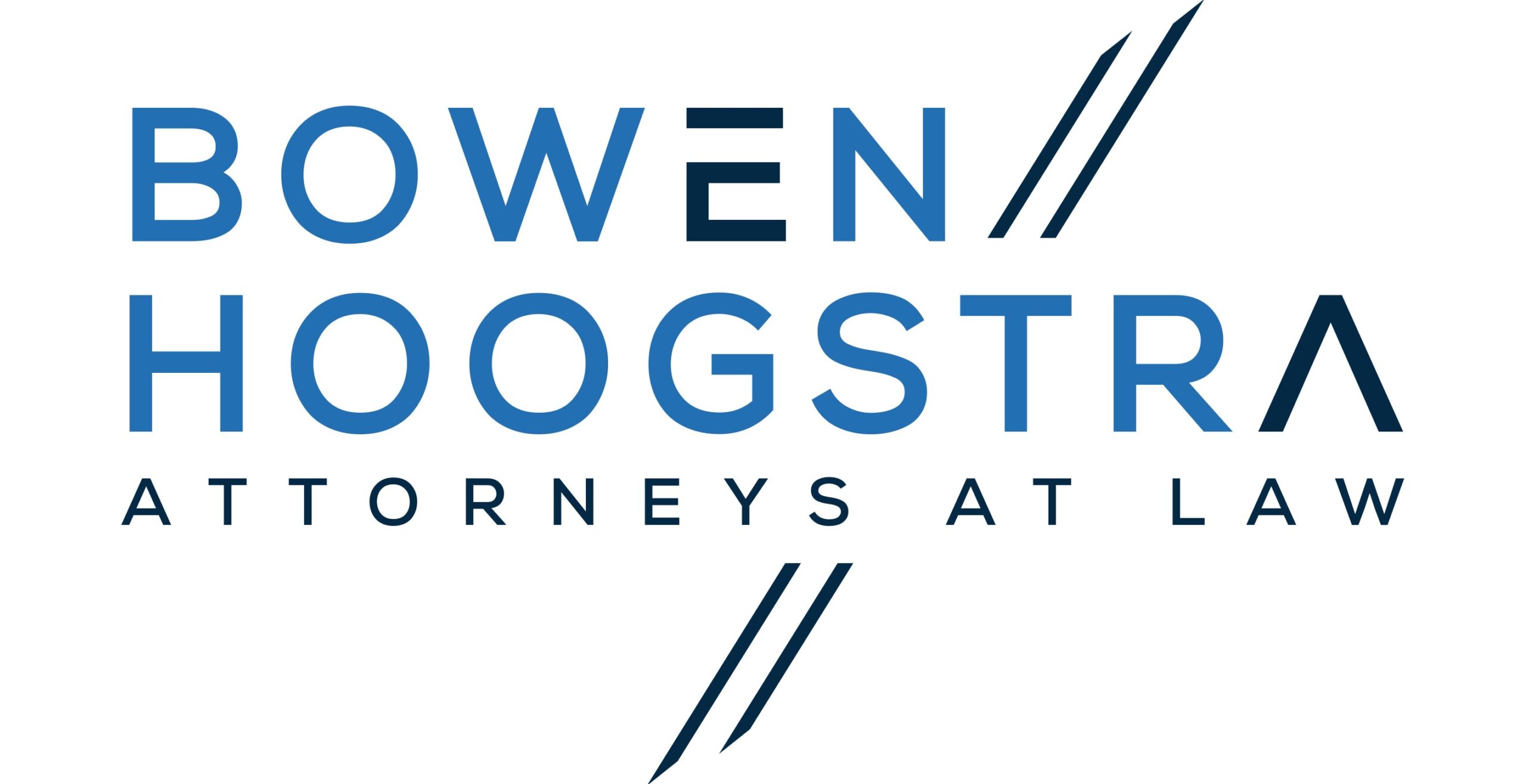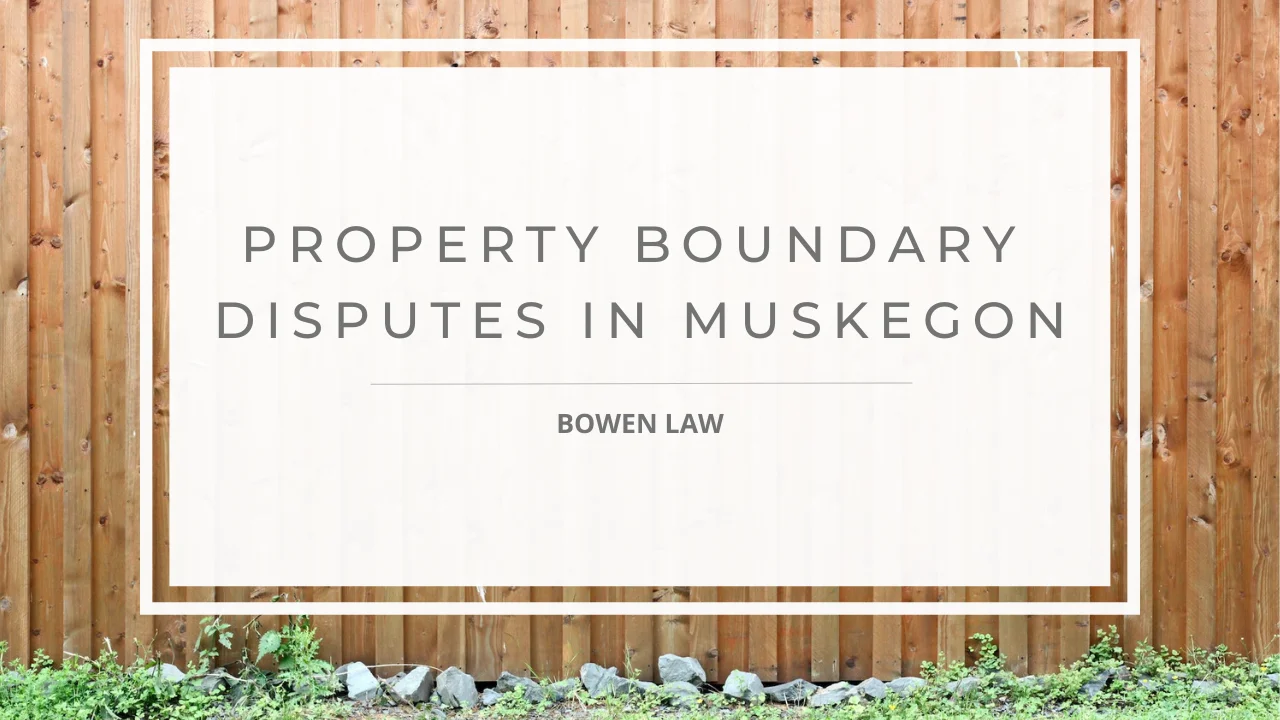Property Boundaries in Disputes Muskegon – Everything You Need to Know
Property boundaries in Michigan are a touchy subject you should become intimately familiar with, if you’re about to, want to, or already own land.
If you’re like most people, your home and property are among your most prized possessions — we presume you want to protect it. A property boundary dispute with a neighbor can make living uncomfortable, to say the least. Unfortunately, such issues are so widespread that most states—including Michigan—have passed legislation to address them.
Types of Boundary Disputes in Michigan
Boundary disputes between neighbors can take a variety of forms. Categorizing your argument and understanding more about it can assist you in determining the best plan of action for resolving the conflict. The most prevalent types of border disputes are shown below, along with a brief description.
Encroachment/Adverse Possession
This type of border dispute occurs when a structure on one property encroaches on the neighboring property’s boundary line. Fences, boardwalks or decks, landscaping, sheds, and even larger structures are frequently involved in these disputes. The trespassing party can be sued by the aggrieved party. However, the intruding party can claim ownership of the land by adverse possession or acquiescence if the trespass meets specific criteria and has been ongoing for more than fifteen years.
Easement Disputes
Easement disputes come in a variety of forms. It’s possible that the parties will argue over a signed easement. Alternatively, a nearby property may have been using an adjacent property for a long enough period to create a prescriptive easement (either to their parcel or, more commonly, to a lake or river).
Acquiescence
This is similar to adverse possession, except it occurs when neighboring landowners agree on a contested or incorrect boundary line.
Boundary Line Questions
Legal descriptions are used to define all property parcels. A surveyor can use these descriptions to draw a physical boundary line on the property. In some cases, a real question about the location of the boundary line between the properties emerges. There could have been a previous error or contradiction in numerous acts, that has caused misunderstanding or inconsistency. Alternatively, surveyors’ previous marks have resulted in a debate over the position of the boundary line. This is why a “quiet title” lawsuit is required. To put its ruling into effect, the court will determine who owns the property and enter an order in the chain of title.
Riparian Rights
Riparian rights are additional rights that apply to properties that are next to bodies of water. These regulate who has access to the water and how it is used. Some of the common issues that come up frequently include public access via road ends, docks and storage, and prescriptive easements.
Michigan Laws on Property Boundary Disputes
The building and maintenance of a fence along a property border are governed by Michigan statutes. A neighbor’s right to cut tree branches that dangle over their property lines is likewise protected by law. Consequently, Michigan courts have evolved the rule on “spite fences,” which are fences built for no other reason than to upset a neighbor. Highlighted below is a breakdown of Michigan laws on the common property boundaries disputes between neighbors:
Tree Trimming/Damage Laws
- As long as the tree is not irreversibly damaged, a neighbor has the right to cut overhanging tree branches up to the property boundary.
- Both neighbors own the tree on the property boundary, and it must be maintained according to a mutual agreement.
- Unless the tree was carelessly maintained, a landowner is not accountable for harm to a neighbor’s property that was caused by weather or Acts of God.
- A misdemeanor is committed by anyone who knowingly and maliciously harms another person’s tree or plant.
Boundary Fence Law
- The owner of real estate who constructs a fence is responsible for the cost of construction.
- If a neighbor begins to use the fence to confine animals, the neighbor must pay the property owner for his or her proportionate share of the fence.
- Each municipality chooses a “fence viewer,” who is in charge of resolving disputes between neighbors over property lines, fence maintenance charges, and fence damage.
Spite Fence Law
- A “spite fence” is one constructed with malice and purely to restrict a neighbor’s light, air, or view, with no other purpose or benefit to the landowner.
- A fence that is ruled to be a spite fence is a nuisance that interferes unreasonably with the neighbor’s use and enjoyment of his own land.
Find a Real Estate Attorney in Muskegon
Are you in the middle of a real estate dispute? Our attorneys assist clients in a variety of real estate disputes, including:
- Disputes over boundaries
- Disputes between neighbors
- Disputes over purchases and sales
- Residential property disputes
- Disputes over easements and access
We understand how expensive and time-consuming litigation can be. This is why our goal is to assist our clients in resolving disputes in the most expedient and cost-effective way possible.

